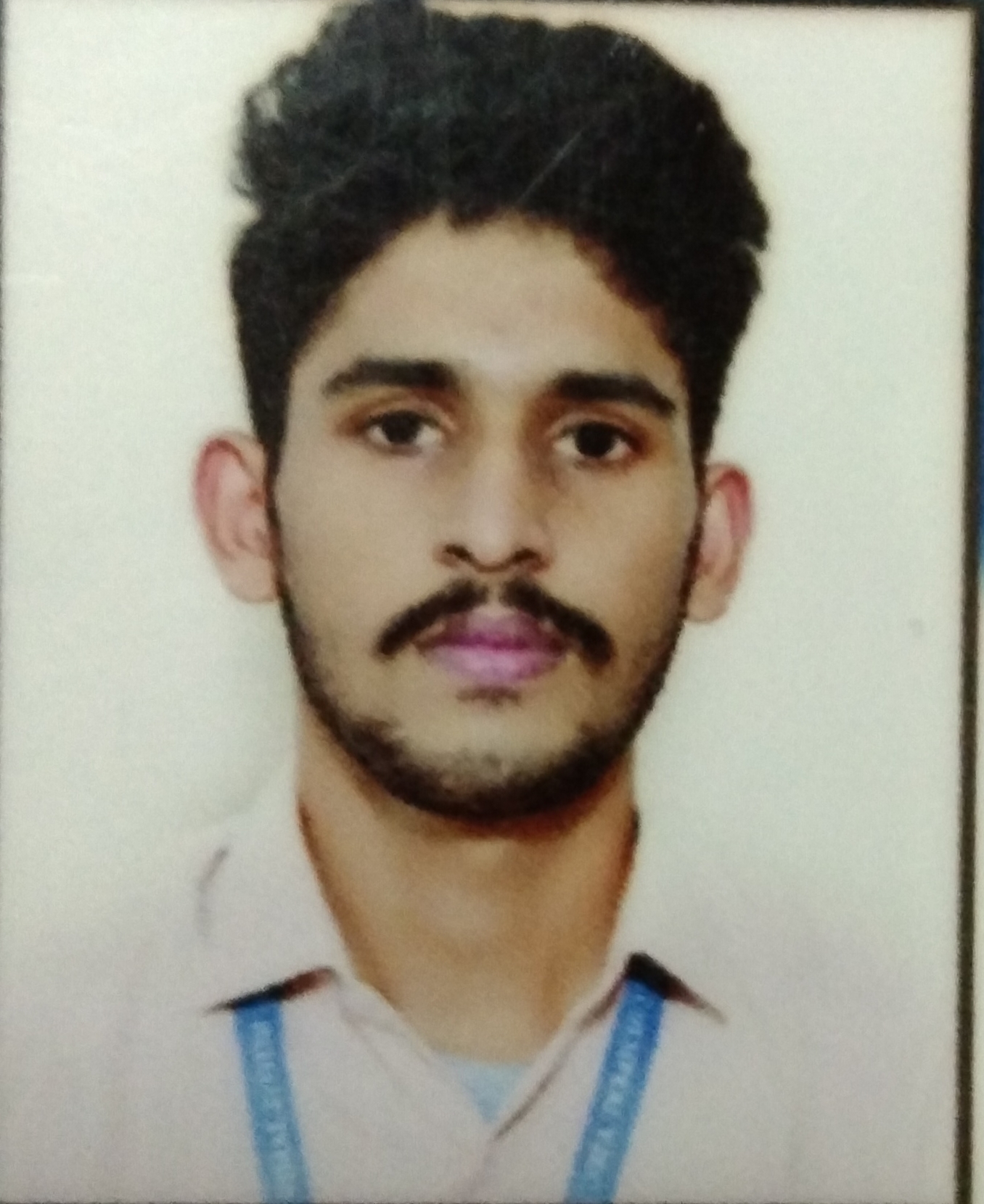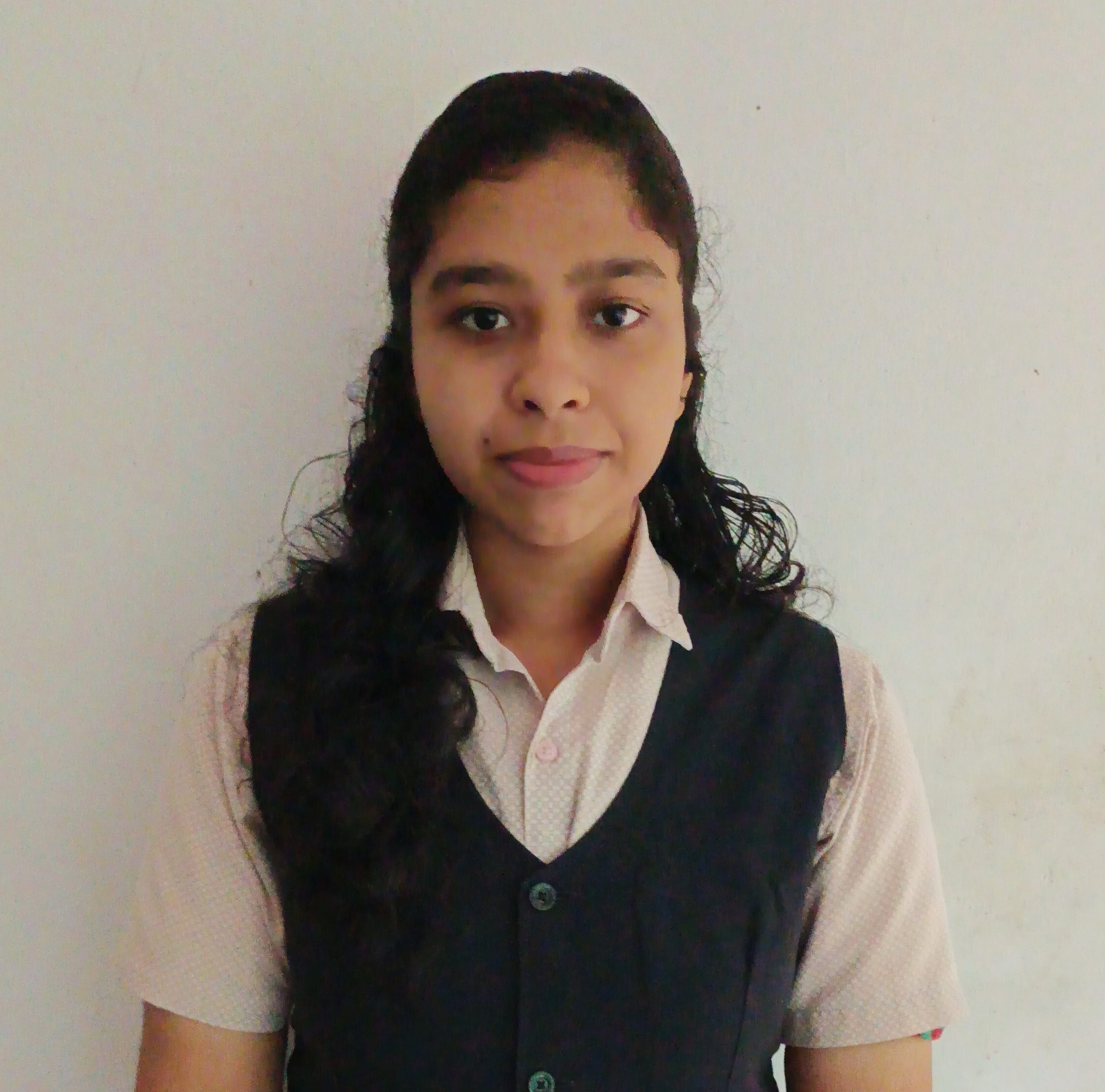Placements
Abhinav S
Al-Nakheel Electronics
Aswanth Shaji
Al-Nakheel Electronics
Shanat K S
Al-Nakheel Electronics
- Department of Electrical and Electronics Engineering was established in the year 2002 and has been imparting quality education. The Department is accredited by NBA (National Board of Accreditation) from 2017.
- Highly dedicated, hardworking, young, dynamic and well qualified faculty members are the main assets of the department.
- The department regularly organize community development programs, STTPs, FDPs, National and International seminars, workshops, conferences and symposiums in various specialized fields.
10Jul 2025
ELECTRICAL NEWSLETTER JUNE 2025
ELECTRICAL NEWSLETTER JUNE 2025
25Apr 2025
ELECTRICAL NEWSLETTER APRIL 2025
ELECTRICAL NEWSLETTER APRIL 2025
21Feb 2025
ELECTRICAL NEWSLETTER FEBRUARY 2025
ELECTRICAL NEWSLETTER FEBRUARY 2025
10Jan 2025
ELECTRICAL NEWSLETTER DECEMBER 2024
ELECTRICAL NEWSLETTER DECEMBER 2024
23Oct 2024
ELECTRICAL NEWSLETTER OCTOBER 2024
ELECTRICAL NEWSLETTER OCTOBER 2024
11Sep 2024
ELECTRICAL NEWSLETTER AUGUST 2024
ELECTRICAL NEWSLETTER AUGUST 2024
19June 2024
ELECTRICAL NEWSLETTER JUNE 2024
ELECTRICAL NEWSLETTER JUNE 2024
16Apr 2024
ELECTRICAL NEWSLETTER APRIL 2024
ELECTRICAL NEWSLETTER APRIL 2024
08Feb 2024
ELECTRICAL NEWSLETTER FEB 2024
ELECTRICAL NEWSLETTER FEB 2024
27Dec 2023
ELECTRICAL NEWSLETTER DEC 2023
ELECTRICAL NEWSLETTER DEC 2023
| Department Location |
TAGORE BLOCK (1st floor) |
| Head of Department |
Prof. Laly James |
| Address for communication |
Associate Professor & Head of Department,
Electrical and Electronics Engineering,
Vimal Jyothi Engineering College,
Chemperi Post,
Kannur Dist-670632 Kerala, India
|
| Email-ID |
[email protected] |
| Telephone number |
8086350124,+914602213399, Extension : 129(HOD)
|
| UG Program |
B.Tech in Electrical and Electronics Engineering (Intake-60)
|
Vision
To evolve as a centre of excellence, to train students in contemporary technologies, to meet the needs of global industry and to develop them into skillful engineers instilled with human values and professional ethics.
Mission
To produce competent and disciplined Electrical & Electronics Engineers through delivery of quality education to meet the ongoing global challenges in alignment with the technical education system and society.
Long Term Goals
Electrical and Electronics Engineering
- To develop students with skill, attitude and leadership qualities.
- To create an environment & ambience suitable for research.
- To establish a Centre of Excellence in Electrical and Electronics Engineering.
- To emerge as a Knowledge hub for Education with International Quality
Standards.
Short Term Goals
- To achieve 100 percent pass in all semesters.
- To achieve 80 percent placement.
- To offer industry relevant coaching combined with practical exposure in all
areas.
Program Educational Objectives (PEOs)
- Graduates will achieve broad and in-depth knowledge of Electrical & Electronics Engineering relating to industrial practices and research to analyze the practical problems and think creatively to generate innovative solutions using appropriate technologies.
- Graduates will make valid judgment, synthesize information from a range of sources and communicate them in sound ways appropriate to the discipline.
- Graduates will sustain intellectual curiosity and pursue lifelong learning not only in areas that are relevant to Electrical & Electronics Engineering, but also that are important to society
- Graduates will adapt to different roles and demonstrate leaderships in global working environment by respecting diversity, professionalism and ethical practices.
Knowledge and Attitude Profile (WK)
- WK1: A systematic, theory-based understanding of the natural sciences applicable to the discipline and awareness of relevant social sciences.
- WK2: Conceptually-based mathematics, numerical analysis, data analysis, statistics and formal aspects of computer and information science to support detailed analysis and modelling applicable to the discipline.
- WK3: A systematic, theory-based formulation of engineering fundamentals required in the engineering discipline.
- WK4: Engineering specialist knowledge that provides theoretical frameworks and bodies of knowledge for the accepted practice areas in the engineering discipline; much is at the forefront of the discipline.
- WK5: Knowledge, including efficient resource use, environmental impacts, whole-life cost,re-use of resources, net zero carbon, and similar concepts, that supports engineering design and operations in a practice area.
- WK6: Knowledge of engineering practice (technology) in the practice areas in the engineering discipline.
- WK7: Knowledge of the role of engineering in society and identified issues in engineering practice in the discipline, such as the professional responsibility of an engineer to public safety and sustainable development.
- WK8: Engagement with selected knowledge in the current research literature of the discipline,
awareness of the power of critical thinking and creative approaches to evaluate
emerging issues.
- WK9: Ethics, inclusive behavior and conduct. Knowledge of professional ethics,
responsibilities, and norms of engineering practice. Awareness of the need for diversity
by reason of ethnicity, gender, age, physical ability etc. with mutual understanding
and respect, and of inclusive attitudes.
Program Outcomes (POs)
- PO1: Engineering Knowledge: Apply knowledge of mathematics, natural science,
computing, engineering fundamentals and an engineering specialization as specified in WK1 to WK4 respectively to develop to the solution of complex engineering problems.
- PO2: Problem Analysis: Identify, formulate, review research literature and analyze
complex engineering problems reaching substantiated conclusions with consideration for sustainable development. (WK1 to WK4).
- PO3: Design/Development of Solutions: Design creative solutions for complex
engineering problems and design/develop systems/components/processes to meet
identified needs with consideration for the public health and safety, whole-life cost,
net zero carbon, culture, society and environment as required. (WK5).
- PO4: Conduct Investigations of Complex Problems: Conduct investigations of complex engineering problems using research-based knowledge including design of experiments, modelling, analysis & interpretation of data to provide valid conclusions.(WK8).
- PO5: Engineering Tool Usage: Create, select and apply appropriate techniques, resources and modern engineering & IT tools, including prediction and modelling recognizing their limitations to solve complex engineering problems. (WK2 and WK6).
- PO6: The Engineer and The World: Analyze and evaluate societal and environmental aspects while solving complex engineering problems for its impact on sustainability with reference to economy, health, safety, legal framework, culture and environment. (WK1, WK5, and WK7).
- PO7: Ethics: Apply ethical principles and commit to professional ethics, human values, diversity and inclusion; adhere to national & international laws. (WK9).
- PO8: Individual and Collaborative Team work: Function effectively as an individual, and as a member or leader in diverse/multi-disciplinary teams.
- PO9: Communication: Communicate effectively and inclusively within the engineering community and society at large, such as being able to comprehend and write effective reports and design documentation, make effective presentations considering cultural, language, and learning differences
- PO10: Project Management and Finance: Apply knowledge and understanding of
engineering management principles and economic decision-making and apply these to one’s own work, as a member and leader in a team, and to manage projects and in multidisciplinary environments.
- PO11: Life-Long Learning: Recognize the need for, and have the preparation and ability for i) independent and life-long learning ii) adaptability to new and emerging technologies and iii) critical thinking in the broadest context of technological change. (WK8).
Program Specific Outcomes (PSOs)
- Apply the knowledge of electrical fundamentals , circuit design, control engineering, analog & digital electronics to the field of electrical & electronics systems in industry.
- Develop technical knowledge, skill, and competence to identify comprehend and solve problems in research and academic related to power system engineering , industrial drives & control.
Course Outcomes (COs)
View
Applied Electronics & Instrumentation Engineering
Artificial Intelligence and Data Science
Civil Engineering
Computer Science and Engineering and Business Systems
Computer Science and Engineering (Cyber Security)
Computer Science and Engineering
Computer Science & Design
Electronics & Communication Engineering
Electrical & Electronics Engineering
Mechanical Engineering






